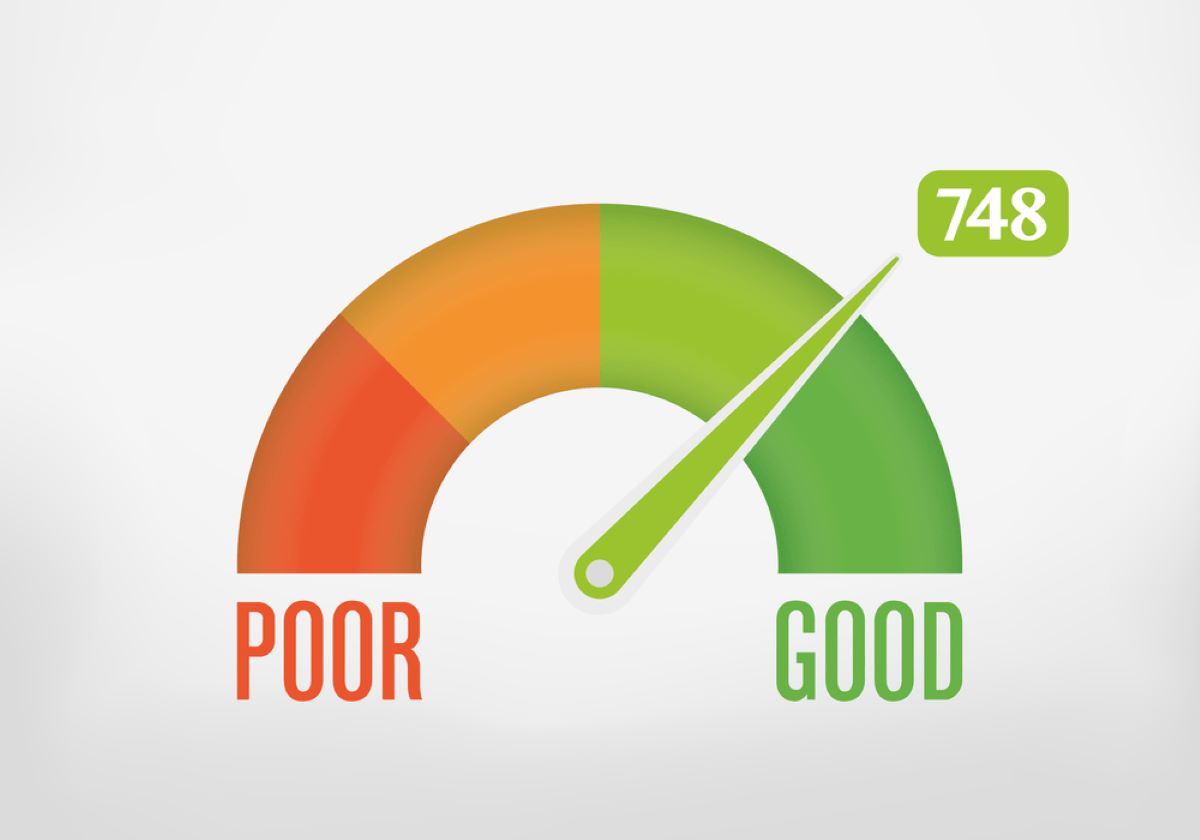

Finance
What Countries Don’t Have Credit Scores
Published: January 13, 2024
Discover which countries do not use credit scores and learn about the impact on personal finance.
(Many of the links in this article redirect to a specific reviewed product. Your purchase of these products through affiliate links helps to generate commission for LiveWell, at no extra cost. Learn more)
Table of Contents
Introduction
When it comes to financial matters, credit scores play a crucial role in determining an individual’s creditworthiness and financial stability. In many countries, credit scores are an integral part of the financial system, used by lenders, landlords, and insurance companies to assess a person’s ability to repay debts and manage their finances.
However, there are still countries in the world where credit scores are non-existent or have not been widely implemented. In these countries, individuals do not have a traditional credit score assigned to them, which can create both advantages and disadvantages for the population.
In this article, we will explore the reasons why certain countries do not have credit scores, the impact this absence has on individuals and the economy, and the efforts being made to introduce credit scores in these regions.
While credit scores may seem like a ubiquitous concept, it is important to recognize the varied financial systems and cultural practices that exist worldwide. The absence of credit scores in certain countries opens up a discussion about alternative methods of evaluating creditworthiness and the potential for financial inclusion.
Join us as we delve into the fascinating world of credit scores and discover which countries operate outside the traditional system.
Why Credit Scores are important
Credit scores are a critical component of the modern financial system, serving as a reliable metric for determining an individual’s creditworthiness. They provide lenders and other financial institutions with valuable insight into a person’s credit history and their ability to manage debt responsibly. Here are some key reasons why credit scores are vital:
- Lending decisions: Credit scores help lenders assess the risk associated with lending money to an individual. A higher credit score indicates a lower risk, making it more likely for someone to secure loans, mortgages, or credit cards at favorable terms and interest rates.
- Financial opportunities: A good credit score opens up a world of financial opportunities. It can enable individuals to access better credit cards, qualify for higher credit limits, and obtain lower interest rates on loans, resulting in significant savings over time.
- Employment prospects: Some employers consider credit scores when making hiring decisions, especially for roles that involve financial responsibilities. A strong credit score can demonstrate responsibility and reliability, potentially improving job prospects in certain industries.
- Rental agreements: Landlords often use credit scores to evaluate potential tenants for rental properties. A good credit score can increase the chances of securing a lease, while a poor credit score may lead to rental rejections or higher security deposits.
- Insurance premiums: In some countries, credit scores are utilized by insurance companies to determine premiums for auto, home, or life insurance policies. A good credit score may result in lower premiums, while a poor credit score could lead to higher insurance costs.
Overall, credit scores provide a standardized measure of an individual’s creditworthiness, helping lenders and financial institutions make informed decisions. They serve as a valuable tool for individuals to build credit, access financial opportunities, and demonstrate responsible financial behavior.
Countries that don’t have Credit Scores
While credit scores are widely used in many countries around the world, there are still several countries where they do not exist or have not been widely implemented. Here are some examples of countries that don’t have credit scores:
- India: In India, traditional credit scores, such as FICO scores, are not widely used. However, the country has implemented its own credit scoring system called the Credit Information Bureau (CIBIL) score. This score measures an individual’s creditworthiness based on their credit history and repayment behavior.
- China: China operates on a different credit scoring system known as the Social Credit System. It uses various data points, including financial behavior, social activities, and personal conduct, to calculate an individual’s social credit score. While this system is not traditional in the sense of credit scoring, it influences access to financial services and other privileges.
- Brazil: Brazil’s credit scoring system is still in its early stages of development and adoption. While credit bureaus exist, credit scores are not as commonly used as in other countries. Financial institutions often rely on other factors, such as income and collateral, to assess a borrower’s creditworthiness.
- Russia: Credit scores in Russia are not as prevalent as in some other countries. Financial institutions rely more heavily on an individual’s income, employment history, and collateral when making lending decisions.
- Kenya: In Kenya, credit scoring is still in its infancy. The country has made efforts to establish credit bureaus and introduce credit scores, but adoption and awareness among the population are relatively low. Alternative lending models, such as microfinance and mobile banking, play a significant role in assessing creditworthiness.
It is worth noting that in these countries, while traditional credit scores may not be prominent, alternative methods of assessing creditworthiness and financial behavior exist. These methods take into account factors beyond the traditional credit history, financial statements, or repayment patterns.
As financial systems continue to evolve, the adoption of credit scoring models in these countries may increase, providing individuals with standard credit assessments and further integrating them into the global financial landscape.
Factors contributing to the absence of Credit Scores in certain countries
The absence of credit scores in certain countries can be attributed to various factors. Understanding these factors can shed light on the unique challenges faced by these countries in adopting traditional credit scoring systems. Here are some key factors contributing to the absence of credit scores:
- Limited access to formal financial systems: In some countries, a significant portion of the population lacks access to formal financial systems, such as banks or credit unions. Without a formal banking relationship, individuals may not have a credit history that can be used to generate a credit score.
- Informal economies and cash-based transactions: In countries where informal economies thrive and cash-based transactions are prevalent, it can be challenging to track and document financial activities effectively. This lack of documentation makes it difficult to establish a comprehensive credit history necessary for credit scoring.
- Cultural and social factors: Cultural and social factors also play a role in the absence of credit scores in certain countries. In some societies, borrowing money is seen as a sign of financial instability or weakness, leading to a reluctance to engage in formal borrowing or credit transactions.
- Lack of comprehensive data: Traditional credit scoring models rely heavily on comprehensive data, such as loan repayment history, credit card usage, and other financial activities. In countries where such data is not readily available or centralized, generating accurate credit scores becomes a significant challenge.
- Regulatory and legal barriers: The absence of credit scores in certain countries can also be attributed to regulatory and legal barriers that impede the development and adoption of credit scoring systems. These barriers may include data privacy laws, lack of credit reporting regulations, or limited credit bureau infrastructure.
It is important to understand that the absence of credit scores does not necessarily mean a lack of creditworthiness. In some countries, alternative methods, such as collateral-based lending, community-based credit evaluation, or social networks, serve as substitutes for traditional credit scores.
However, as these countries continue to progress economically and socially, there is a growing recognition of the importance of credit scoring systems in promoting financial inclusion and enabling access to credit for individuals and businesses. Efforts are being made to address the factors contributing to the absence of credit scores and develop more inclusive and comprehensive credit assessment methods.
Impact of not having Credit Scores on individuals and the economy
The absence of credit scores can have significant implications for both individuals and the overall economy of a country. Here are some key impacts:
- Limited access to credit: Not having credit scores can restrict individuals’ access to formal credit and financial services. Without a standard measure of creditworthiness, financial institutions may be reluctant to lend to individuals, making it challenging to obtain loans for education, housing, or business endeavors.
- Higher borrowing costs: Without credit scores, individuals may face higher borrowing costs, such as higher interest rates or fees. Lenders often rely on alternative methods, such as income verification or collateral requirements, which can result in more expensive credit terms for borrowers.
- Difficulty in establishing financial stability: Credit scores play a crucial role in building a strong financial profile. Without a credit score, individuals may struggle to establish a positive credit history, making it harder to qualify for better financial opportunities in the future, such as lower interest rates or higher credit limits.
- Impact on small businesses: The absence of credit scores can also hinder the growth of small businesses. Without a credit score to demonstrate creditworthiness, entrepreneurs may struggle to secure financing for their ventures, limiting their ability to expand and create jobs, ultimately hindering economic growth.
- Increased reliance on informal lending: In the absence of credit scores, individuals may turn to informal lending sources, such as loan sharks or high-interest microfinance institutions. These sources often come with exorbitant interest rates and predatory practices, further exacerbating financial vulnerabilities.
- Missed opportunities for financial inclusion: The lack of credit scores can perpetuate the exclusion of underprivileged individuals from accessing formal financial services. Without a standardized credit assessment, marginalized groups may find it harder to overcome financial barriers and secure loans needed for education, housing, or entrepreneurship.
On an economic level, the absence of credit scores can limit the efficiency and stability of financial systems. It can lead to lower levels of investment, slower economic growth, and a less competitive business environment. A lack of credit scoring infrastructure can hinder foreign investment and stall economic development in countries that rely on credit and lending for growth.
Recognizing the impact of not having credit scores, many countries are working towards introducing credit scoring systems or alternative methods for assessing creditworthiness. These efforts aim to promote financial inclusion, foster economic growth, and provide individuals with equal access to credit and financial opportunities.
Efforts and initiatives to introduce Credit Scores in these countries
The absence of credit scores in certain countries has prompted various efforts and initiatives to introduce credit scoring systems or alternative methods for assessing creditworthiness. These initiatives aim to promote financial inclusion and provide individuals with access to formal credit. Here are some examples:
- Development of credit bureaus: Many countries have established or are in the process of developing credit bureaus that collect and compile credit information. These bureaus aim to provide a centralized repository of credit data, which can serve as a foundation for credit scoring models.
- Adoption of alternative credit assessment methods: In countries where traditional credit scoring systems are not feasible, alternative methods for assessing creditworthiness have emerged. This includes incorporating non-traditional data sources, such as utility bill payments or rental histories, into credit assessments.
- Technology-driven solutions: Technological advancements have played a significant role in introducing credit scoring systems in certain countries. Digital platforms and fintech companies utilize machine learning algorithms and alternative data points to assess creditworthiness and expand access to credit.
- Collaboration between government and financial institutions: Governments are partnering with financial institutions to develop credit scoring systems that cater to the unique needs of their populations. These collaborations aim to establish comprehensive credit reporting frameworks and promote responsible lending practices.
- Financial education and awareness: Efforts to introduce credit scores often go hand in hand with financial education and awareness campaigns. Educating individuals about the importance of credit scores, responsible borrowing, and financial management helps build trust in the credit system and encourages active participation.
These efforts recognize the importance of credit scores in facilitating access to credit and promoting financial inclusion. By introducing credit scoring systems or alternative credit assessment methods, countries aim to create a fair and transparent credit environment where individuals can access credit based on their financial behaviors and creditworthiness.
It is important to highlight that implementing credit scoring systems requires careful consideration of cultural, social, and regulatory factors unique to each country. Therefore, collaboration between governments, financial institutions, and technology innovators is crucial in developing tailored solutions that address the specific challenges and needs of these countries.
Conclusion
The absence of credit scores in certain countries highlights the diverse financial landscapes that exist worldwide. While credit scoring is widely adopted in many countries, there are still regions where traditional credit scoring systems are non-existent or have not been widely implemented.
This article has shed light on the importance of credit scores, their impact on individuals and the economy, and the efforts being made to introduce credit scoring systems or alternative credit assessment methods in these countries.
Not having credit scores can limit access to formal credit and financial services, increase borrowing costs, and hinder financial stability for individuals. It also poses challenges for small businesses and can perpetuate exclusion and inequality in financial systems.
However, various initiatives are underway to address this issue. Countries are developing credit bureaus, exploring alternative credit assessment methods, leveraging technology-driven solutions, and promoting financial education and awareness. These efforts aim to provide individuals with equal access to credit, foster economic growth, and promote financial inclusion.
We are witnessing the evolution of credit scoring systems, as they adapt to the unique challenges and needs of each country. With the collaboration of governments, financial institutions, and technology innovators, more individuals will have the opportunity to build credit, access financial services, and thrive in the global financial landscape.
As we move forward, it is essential to recognize the importance of credit scores in providing individuals with opportunities to achieve their financial goals, while also addressing cultural, social, and regulatory factors to ensure that credit scoring systems are fair, inclusive, and serve the needs of diverse populations.














